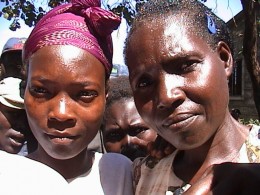Mar 6:30-31 The apostles returned to Jesus and told him all that they had done and taught. And he said to them, “Come away by yourselves to a desolate place and rest a while.” For many were coming and going, and they had no leisure even to eat.
The first ministry trip of the early disciples must have been both exciting and ‘heart-thumping’. They had never been in the front line before – they had always watched Jesus ‘do the stuff’ (as our dear friend John Wimber used to say).
After several days they came together again with Jesus. Can you imagine the stories they told one another? First one would tell of a healing, then another of a wonderful deliverance. No doubt each disciple tried to ‘cap’ the previous story!
Debriefing is a vital conclusion to any task. Indeed, in my judgement, the task has not really been completed until a debrief has taken place. One of the most important parts of discipleship is to get together with the one who has been ‘sent out’ i.e. commissioned with a particular task. There are a several reasons for this.
1. Has he done what was intended?
It is important for an individual to know that he is accountable and that he must be able to demonstrate that he has fulfilled your wishes.
2. There may be the need for emotional support.
After a time of emotional testing, such as being involved in deliverance or ministering into an area of trauma, there may be the need for personal support, the opportunity to speak in confidence about what has been experienced.
 I well remember the first time I visited Sierra Leone in West Africa, during the civil war of the 90s, to monitor the use of some finance that had been donated to the churches. I heard many heart-wrenching stories during that visit and witnessed in the bodies of deliberately-maimed people the evidence of the depravity of man in action. The faces of traumatised people remain etched on my memory.
I well remember the first time I visited Sierra Leone in West Africa, during the civil war of the 90s, to monitor the use of some finance that had been donated to the churches. I heard many heart-wrenching stories during that visit and witnessed in the bodies of deliberately-maimed people the evidence of the depravity of man in action. The faces of traumatised people remain etched on my memory.
Having an opportunity to ‘unload’ is essential. I needed to come to terms with the bestiality that had been recounted to me by many innocent victims of the war. In a less dramatic way, those involved in counselling or helping others in difficulties must similarly be given supportive supervision.
3. What lessons have been learnt? What can be learnt by both the individual and the team from the activity or experience? What could be done differently next time?
Learning-by-doing is one of the most important and powerful ways of imparting skills and faith. And Jesus, as a good trainer, was determined not to miss the opportunity this experience afforded.
So determined was he to gain the most from their ministry trip that he decided to take the disciples away from the crowds for some peace and quiet so that both he and they could enjoy being reunited and hearing about one another’s experiences. He could then draw out appropriate lessons (v31).
Learning point: Always debrief after the completion of a project
